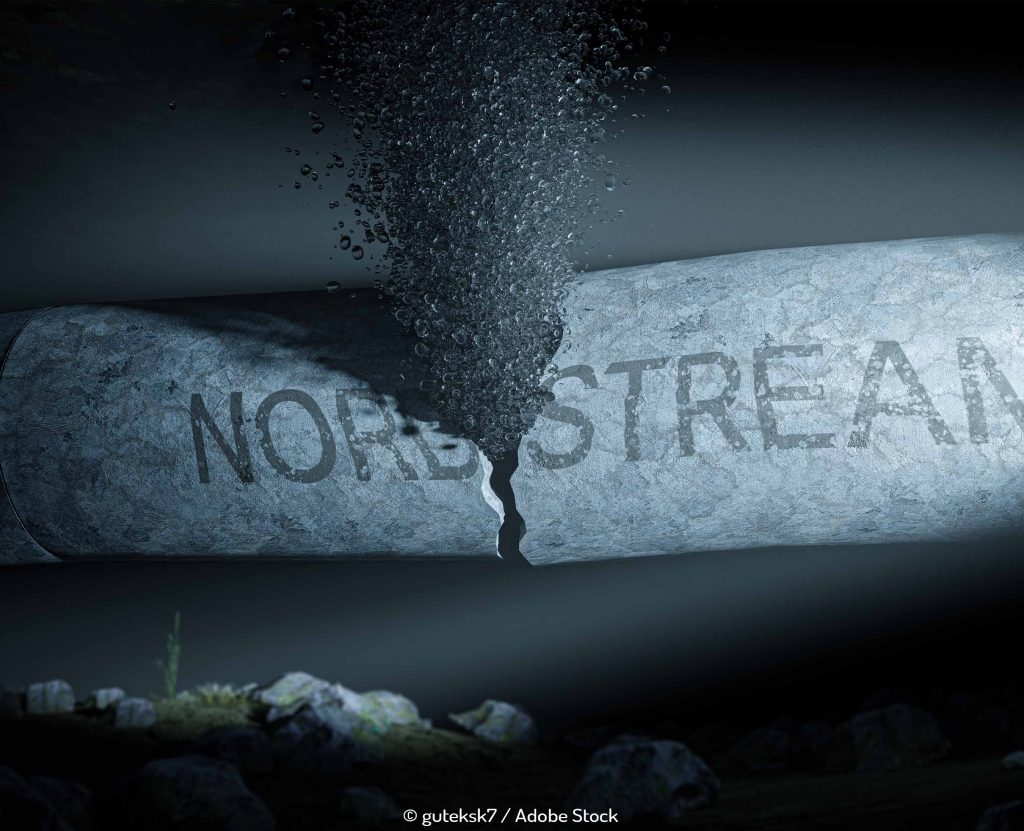
Diving Vessel Sent by Sweden to Investigate the Nord Stream Pipelines Following Leak
Sweden has sent a diving vessel to investigate the part of the Russian Nord Stream pipelines that experienced several days of leakage due to powerful explosions. The submarine rescue ship was sent to support the Swedish coastguard, which led the probe into the circumstances surrounding the incident that has caused an elevation in the already tense situation regarding the energy crisis in Europe.
Hundreds of pounds of explosives were involved in the undersea blasts that caused damage to both the Nord Stream Russian pipelines off Denmark and Southern Sweden, leading to enormous methane leaks in the Baltic Sea’s international waters. The explosion is an alleged act of sabotage, and Moscow is keen to pin the blame firmly on the Western nations, claiming that America stands to gain from the situation by increasing their own LNG (liquified natural gas) prices and sales. The U.S. vehemently denied being involved in the incident, and while Europe suspects that sabotage lies at the heart of the blasts, there have, as yet, been no comments made about who could be held responsible. According to German officials, one theory about the attack is that explosive devices were lowered from a ship and then detonated remotely.
Since the Russian invasion of Ukraine, the Nord Stream pipelines have been at the centre of an energy standoff that has rocked the economies of Western nations and led to the cost of living crisis that is currently causing chaos across several countries.
Russia steadily reduced gas flows through Nord Stream pipeline 1 throughout the first half of 2022 before finally ceasing the flow entirely in August, blaming technical difficulties due to the West’s sanctions on the country. Europe retaliated, saying that Russia was using energy as their weapon. As for the Nord Stream pipeline 2, which has never been operational, the West has resisted Russia’s calls to drop its opposition to this project.
The Nord Stream leaks have raised concerns of potential sabotage of other European energy infrastructure. European countries began strengthening their surveillance and security surrounding infrastructures such as pipelines and submarine cables in the area that could be vulnerable to a similar attack. Europe’s primary gas supplier, Norway, an essential oil exporter, has gone so far as to deploy soldiers to ensure major onshore gas and oil processing plants can be properly guarded. Meanwhile, Italy has increased its surveillance and controls on the TransMed, Trans Adriatic, Trans Austria Gas and GreenStream pipelines. Danish power and gas grid operator Energinet said it had expedited inspections of its pipelines due to damage to Nord Stream 1 and 2 but said it found nothing abnormal.
A greater focus has now been placed on other gas supply lines and their security. Italy’s largest Russian gas importer, Eni, recently reported that all gas flow has now been halted through its Tarvisio entry point, although short-term technical problems have been cited as the cause by its chief executive, who strongly denied that geopolitical factors had anything to do with the stoppage. Instead, he said that the reason lay with the fact that a financial guarantee would need to be paid by Gazprom to transport gas between Austria and Italy – something that wasn’t required in the past.


